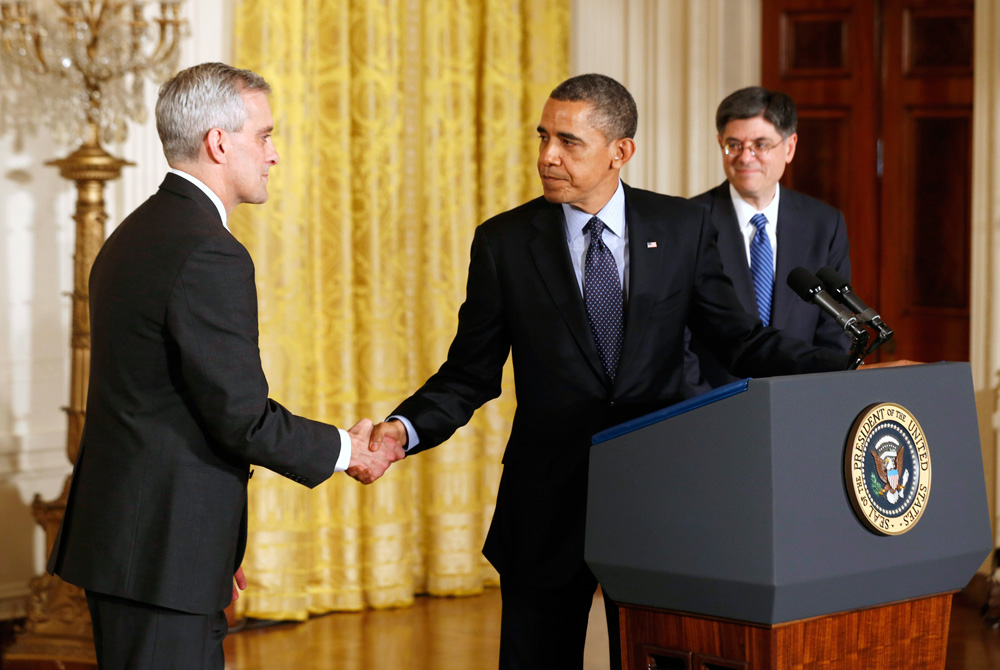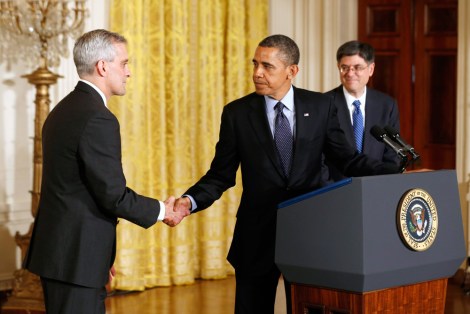Earlier today, President Obama named his new chief of staff, Denis McDonough. (McDonough will replace Jack Lew, who Obama nominated to bring his unique signature to the Department of the Treasury.)
In 2011, Obama’s then-chief of staff, William Daley, was identified as being instrumental in killing the EPA’s proposed standard on ozone. Which raises the question: How will McDonough approach environmental issues? And especially, how will he respond to Obama’s stated prioritization of climate change?
MIT Technology Review looks at McDonough’s track record on climate:
Prior to working for Obama, McDonough served as a senior fellow at the Center for American Progress. While there, he argued that the United States — along with other industrialized countries — has an obligation to help poor countries deal with climate change related problems and to help them reduce their reliance on fossil fuels. If his writings at the time are any indication, he could push both for market-based policies for addressing climate change and for funding to help poor countries adapt to climate change as it happens.
On another tricky question, McDonough seems to support the more controversial choice.
[H]e also recommended funding to help poor countries adapt to climate change, noting, as he wrote in 2007, that “even if appropriate measures were taken today to reduce global emissions by 80 percent by 2050, current atmospheric concentrations of carbon dioxide and other long-lived greenhouse gases are already such that the next 50 years of climate change cannot be averted.”
Funding for poorer nations is something that leaders from developed countries have repeatedly sought to undermine in international negotiations.
McDonough’s views are interesting. In a room with President Obama, they’re at best the second-most important. But at least we can feel confident that someone in the room understands the scope of the climate threat.




